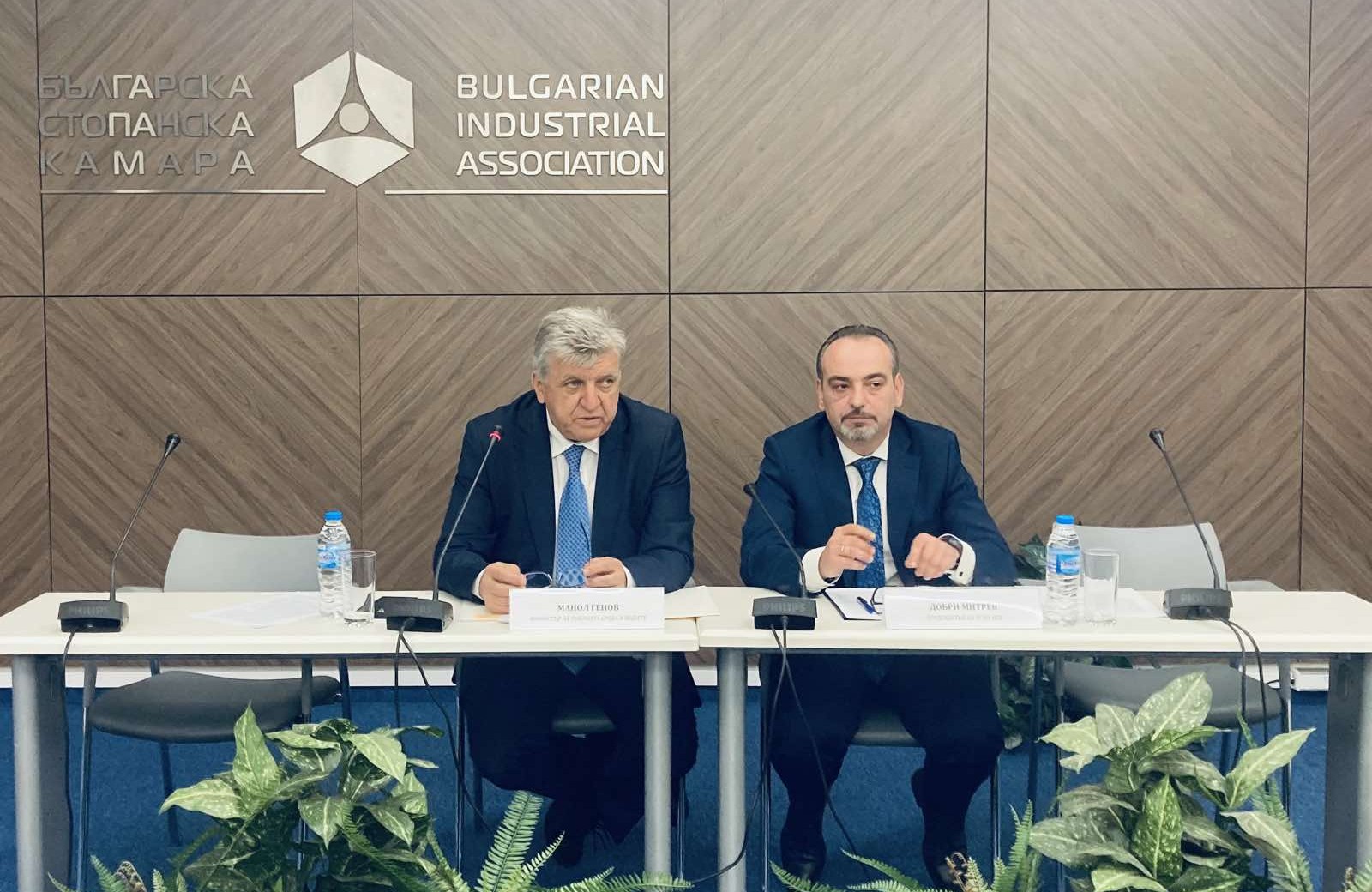Minister of Environment and Water (MoEW) Manol Genov opened a working meeting at the Bulgarian Industrial Association (BIA) with representatives of sectoral organizations and enterprises that are members of BIA. While meetings between Association members and representatives of the Ministry of Environment and Water are conducted frequently, this was the first time Minister Genov visited BIA.
At the opening of the meeting, President of BIA, Dobri Mitrev said: “For us, the topic about clean industry has been relevant for over 30 years, as we represent responsible business. That is why I am grateful that you accepted the invitation to respond to some specific questions and familiarize yourself with pressing issues”.
The participants in the meeting were representatives of sectoral organizations and enterprises from various industrial sectors, including chemical, metallurgical, recycling, polymer, woodworking, tobacco, textile, mineral extraction and processing, household appliance manufacturing, poultry and pig farming, vegetable oil and oilseed production, soft drinks, breweries, traders, and water and sewerage operators.
A question was raised about the need to expand the scope of the Carbon Border Adjustment Mechanism (CBAM), which currently targets carbon-intensive industries such as steel, cement, and aluminum. Expanding it to downstream products made from these materials—such as refrigerators, washing machines, and air conditioners—would provide fairer competitive conditions, according to business representatives. Minister Manol Genov confirmed that the government shares this position. "Without such expansion, European producers would bear higher costs from carbon pricing on materials like steel and aluminum, undermining their competitiveness," he said, adding that this position is also supported by other EU member states, although negotiations on the expansion are still to be considered.
"The duration of the procedure for issuing an Integrated Permit (IP) according to the law is 190–200 days, and in most cases, this period needs to be extended due to the need for amplifying and refining the application by the operators," summarized Minister Genov in response to a proposal to simplify the regime or change the permitting process. He emphasized that the quality of the documentation submitted by the operator is crucial for meeting the deadlines, as this could prevent the Executive Environment Agency from having to return the application for revision, potentially saving up to a month in the process.
The transposition of changes to the European Industrial Emissions Directive into Bulgarian legislation was also a major point in the discussion. The new directive affects a larger number of poultry and pig farming installations, as it reduces the capacity threshold above which an IP is required and introduces a new registration procedure for installations with lower capacity. Minister Genov emphasized that the new requirements are aimed directly with the intention of protecting soil and groundwater from pollution. He stated that the new rules for the installations covered by the updated Directive would take effect no earlier than the first half of 2030. After adoption by the European Commission, the requirements will be implemented gradually over a four-year period. The Minister stated that after the act is adopted, the Ministry of Environment and Waters will inform all affected installations and provide methodological support.
Minister Genov also announced that the MoEW team is working on regulatory changes to ease the regime for the use of water for irrigation. At the same time, in the reservoir schedule for May, water requests for energy purposes have been limited in favor of the agricultural sector’s irrigation needs.
The Minister of Environment and Water also expressed his expectation that by mid-May, models for charging waste collection fees based on the "polluter pays" principle will be presented. This is part of a project by the National Association of Municipalities in the Republic of Bulgaria, worth BGN 5 million and financed by the Environment Program. "When we make serious decisions about waste management, we all need to be involved," said Minister Genov, sharing that amendments to the Waste Management Act are being prepared. These will introduce higher penalties and grant more authority to municipal authorities to deal with illegal landfills throughout the country.






